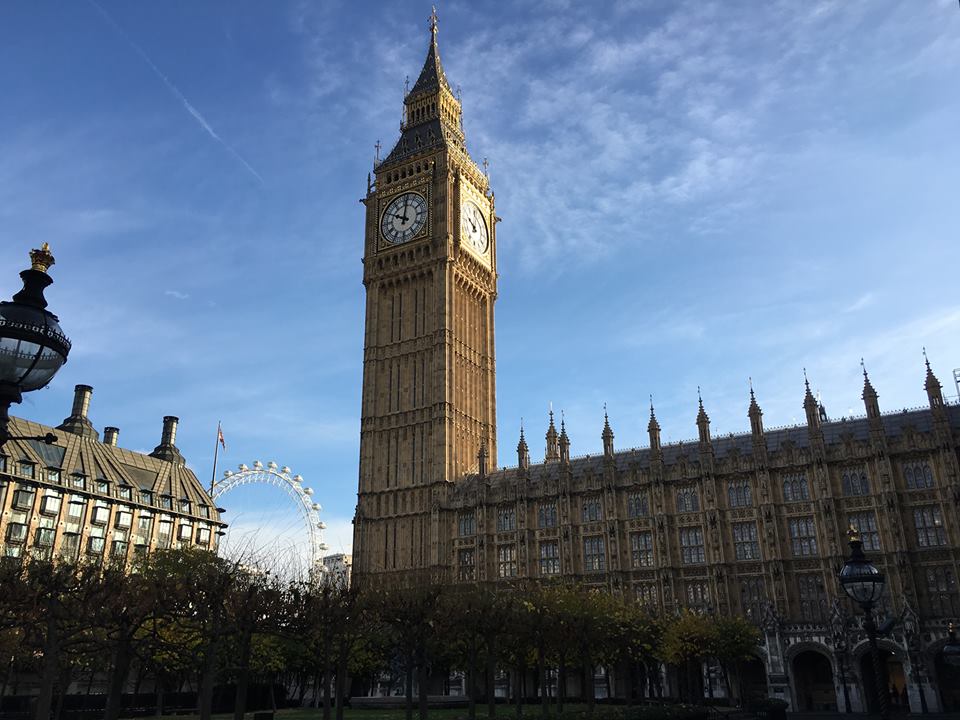Why I could not support the second lockdown
This week, following a short debate, Parliament had the chance to vote whether it supported locking down the country once more.
I decided that I could not vote to lock down our country again, given the lack of evidence that lockdowns offer a long-term solution, the fatal affect it would have on our businesses, the loss of jobs and livelihoods for millions of people, and the long-term damage to our health service and consequent fatalities in the longer term.
Earlier this year we knew little about the virus and had little time to prepare. A national lockdown was absolutely the right thing to do in these circumstances.
In contrast, today we know so much more about the virus. We know how fast it spreads, who is at risk, and how best we can treat the minority of people who suffer serious effects. I do not think the benefits of a lockdown today will outweigh cost on the health of the nation in the long term.
Those businesses that haven’t already been driven into failure have been hanging on by a thread through the summer in the hope that they might survive by trading through the autumn and winter period. Many will now close their doors for good. The demise of these viable businesses will destroy jobs and livelihoods at a rate that no recession could ever achieve. Millions of people will be out of work and reliant on state benefits through no fault of their own. The effect on them and their families is just awful.
The cost of benefits to support the newly unemployed, combined with plummeting tax revenues, means that less money will be available for public services, such as the NHS. So in addition to the millions of cancelled healthcare appointments earlier this year, many more people will find treatments unavailable in the years ahead.
And let’s not forget the draining impact on people’s health and wellbeing due to isolation and the closure of leisure and fitness facilities.
I was alarmed to find that none of these costs of lockdown appeared in the Government’s analysis of this new lockdown.
The more challenging aspect of my decision was the worry that hospital beds might be overwhelmed. I have to say that the out of date ‘modelling’ was even more unhelpful. The figures were nothing more than projections, illustrations or suggestions, if I were to put it politely. We then discovered that the data was from an old model, we weren’t allowed to check or verify the assumptions and that the false positives in PCR positive cases don’t directly translate into hospitalisations and deaths.
It is pretty self-evident that if more are carrying the virus for the first time, then a number of hospitalisations and deaths will certainly occur. But the level of hospitalisations between based on ‘case numbers’ arising from PCR tests is less easily quantified. The epidemiology, science and statistical analysis is complex enough but I then learned that none of the previous models had actually got close to the reality today and the basis of the projections just keeps changing.
So it was important to get access to the real underlying data. Yet MPs were not given access to the data on bed occupancy rates, nor up-to-date death rates for respiratory illnesses. In all my time in parliament I have never encountered a situation where one could not see the actual data on which such a momentous decision was to be made.
With the lag between infection and hospital admission we could have waited a couple of weeks to see if hospitalisations and deaths were rising after implementing the original 3-tier strategy. In my view we should have given the regional strategy a chance to demonstrate whether or not it was working.
What’s more, by implanting a national lockdown we also repealed the legislation for regional and local responses which is rather bizarre. We will have no system to return to if national lockdown fails to work by 2nd December. Compounding this is my belief that Labour, and others, will push for this lockdown to be extended beyond the 4 weeks.
Firstly, there is little evidence to suggest that compliance with this lockdown will match levels seen earlier this year. People are understandably fatigued with covid restrictions, they know more about the virus and feel they can understand, evaluate, and manage the risks for themselves. As such compliance will certainly be lower.
Second, I also do not believe that the time awarded by this lockdown will be enough to resolve the inadequacies of the test and trace operation.
Third, we still do not have a sustainable and long-term plan to prevent a third wave of infections from happening later next year.
All of this makes it plain to me that pressure will be applied to keep this lockdown in place for many more weeks, causing even greater economic damage in the process.
Pivoting in and out of lockdowns is more destructive than it is sustainable. Not just for businesses, but for us all as individuals and families as well. You can’t live your life, run your business, church or charity with the threat of a sudden shutdown every few months.
Alternative approaches have been tried in other countries which rely on presenting the most obvious transmission forums (mass gatherings with close contact) and most sensible people to follow a limited amount of sensible guidance (hands, face, space etc) whilst allowing the economy to do its good work of providing the jobs, livelihoods and resources to improve healthcare and public services.
We must regain the pragmatism and self-reliance that is at the heart of our national self-confidence and identity and, above all, we must regain our sense of proportion.
Until then, I urge you to respect and follow the new restrictions regardless until parliament and government decides to change its approach.
